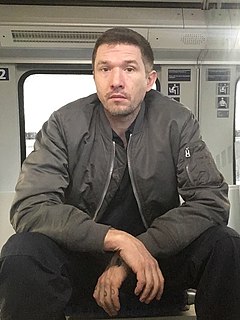A Quote by Jesse Ball
The books turn out to be about things afterwards. I don't go into them with concepts, for the most part.
Related Quotes
Every morning I'd have coffee with my wife and we would discuss ideas. Sixty percent of what I did for the stores was concepts. The other forty percent was correcting and cleaning up other concepts in house, or doing final art on my concepts. Most of my concepts were so finished they could turn them over to somebody else.
A library is many things. It's a place to go, to get in out of the rain. It's a place to go if you want to sit and think. But particularly it is a place where books live, and where you can get in touch with other people, and other thoughts, through books. If you want to find out about something, the information is in the reference books---the dictionaries, the encyclopedias, the atlases. If you like to be told a story, the library is the place to go.
Sometimes you walk into things, that, if you were paying attention, vibrationally, you would know right from the beginning that it wasn't what you are wanting. In most cases, your initial knee-jerk response was a pretty good indicator of how it was going to turn out later. The things that give most of you the most grief are those things that initially you had a feeling response about, but then you talked yourself out of it for one reason or another.
The current publishing scene is extremely good for the big, popular books. They sell them brilliantly, market them and all that. It is not good for the little books. And really valuable books have been allowed to go out of print. In the old days, the publishers knew that these difficult books, the books that appeal only to a minority, were very productive in the long run. Because they're probably the books that will be read in the next generation.
Grown-ups desperately need to feel safe, and then they project onto the kids. But what none of us seem to realize is how smart kids are. They don’t like what we write for them, what we dish up for them, because it’s vapid, so they’ll go for the hard words, they’ll go for the hard concepts, they’ll go for the stuff where they can learn something. Not didactic things, but passionate things.







































